At MUTC, students will have the opportunity to study a range of ideas such as how and why people behave the way they do in society, how behaviour is determined by nurture and how one’s life chances are impacted by social differences. This will allow them to become well informed analytical thinkers
To meet our vision, students will study at depth how structures such as family, education the criminal justice system and Government influence human behaviour. Sociology is a discipline which uses research to investigate and predict human behaviour to help governments improve the lives of its citizens. It is a critical and radical subject, as it includes questioning why society is as it is. It is about digging under the surface and looking at what is really going on. Therefore, students will develop key evaluative skills needed for critical thinking.
Students explore the approaches of sociological theories towards understanding wider social processes and structures. This subject gives one an insight into how things are not always as they seem. Students will begin to see and learn the careful ways in which society is designed and how these designs are not always fair or just. Sociology is a living and breathing subject. Therefore, keeping up to date with contemporary issues is a key factor which makes sociology come alive and have greater relevance to a student’s life.
Sociology at MUTC
Students may join Mulberry UTC (MUTC) at either KS4 or KS5. When a students’ learning journey begins in KS4, they will study GCSE Sociology as a compulsory option prior to moving onto their KS5 pathways. This will be a new subject for them as there is no KS3 option for this qualification, although many may have studied subjects at KS3, which may allow them to establish some cross-curricular links. For example, students who may have studied humanities subjects such as Citizenship Students that start studying Sociology in KS5 may or may not have prior knowledge of this subject, as many who may join from other educational establishments, may not have studied Sociology at KS4.
As a result, learning is carefully sequenced and planned to ensure that students can grasp some key concepts prior to learning about social institutions. For example, in both KS4 and KS5, students will first study a brief Introduction to Sociology unit. This is carefully differentiated to allow clear levels of support and challenge as students may or may not have pre-existing prior knowledge. This is a standalone topic which is not directly linked to the specification but will allow students to learn some key sociological ideas in a creative manner. For example, in KS5 the first two lessons students are given a scenario and told as a group, to compose a functioning society. This not only develops soft skills through group work but also introduces them to vital ideas about what institutions are required in a society.
What will students learn?
KS4
In KS4, students study for the WJEC qualification. Students have various starting points. As mentioned earlier, this course is not taught as a KS3 qualification, but students may have studied some topics as part of standalone PSHE or citizenship lessons in their prior schools.
YEAR 10:
Topics Studied
- Cultural Transition
- Education and Families
- Research Methods
In Year 10, students learn the following units: Cultural Transmission, Education, Families and Research Methods. Through Cultural Transmission, students are taught knowledge that will form the foundation for learning in other topics. Key concepts such as norms, values, socialisation and many more are taught as a building block prior to students learning about Education and Family,
Whilst the first three units focus on substantive knowledge, the Research Methods unit focuses more on disciplinary knowledge. This is because, in this unit students learnt more about how sociologists study society and uncover social phenomena.
YEAR 11:
Topics Studied:
- Crime and Deviance
- Social Stratification
In Year 11, students further develop their conceptual knowledge and revisit and apply these ideas in both the Crime and Deviance and Social Stratification units.
Crime and Deviance hold clear links to prior learning. For example, students explore how educational achievement and family as an agent of socialisation, may have an impact on one’s life chance and link to crime.
Social Stratification is also a synoptic topic, whereby students apply prior learning to both Sociological theories and themes of social inequality. This is followed by revision opportunities and various forms of exams skills practice too.
Knowledge from the Research Methods unit is also revisited and incorporated across both units. For example, students look into key studies linked between socialisation and crime for the Crime and Deviance unit. For Social Stratification, they also explore sociological research and key studies linking to social class inequality.This once again demonstrates how students will develop both substantive and disciplinary knowledge.
How do we assess students and help them to improve?
Prior learning and knowledge are revisited every lesson by way of the retrieval starter activity, whiteboard quizzes and mini plenaries. Lessons also incorporate opportunities for peer and self-assessment. Many lessons also offer opportunities for live marking, and this is used to model how students should meet Assessment objectives. Whole class marking of exam practice is also embedded through the use of a visualiser or visualiser tool such as Microsoft Lens.
In the curriculum plan students also have a midpoint feedback task every three weeks in which they receive detailed whole class feedback. In addition to this, students have end of topic checks for knowledge through tests and essays as well as the traditional mock examinations.
Students are allocated time in lessons to act on feedback to ensure this is meaningful. Students may also be set additional tasks outside the classroom, and this would be based on feedback, and so will either consolidate or develop learning.
Revision lessons are also planned in every topic to allow students to revisit and address any gaps or misconceptions in prior knowledge. Clear revision plans are also implemented and are diagnostic to the learners needs as well.
How will we ensure that the needs of SEND learners and high achieving learners are met?
In Sociology, various tools and techniques are used to ensure that the needs of all learners are being met. For example, seating, teacher circulation and questioning are differentiated to both support and challenge learners. This differentiation also fits in neatly with the no opt out option in lessons as well. Furthermore, students may have lesson resources printed in addition to challenge resources.
Students with SEND will also be supported in the aforementioned manner as well as being provided with a task plan. The Task plan clearly breaks down the lesson for students and is a visual aid and reminder for learners who may process to organise learning and process large amounts of information.










